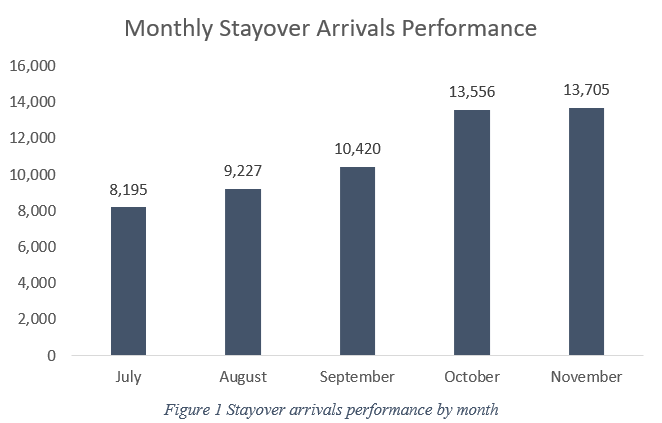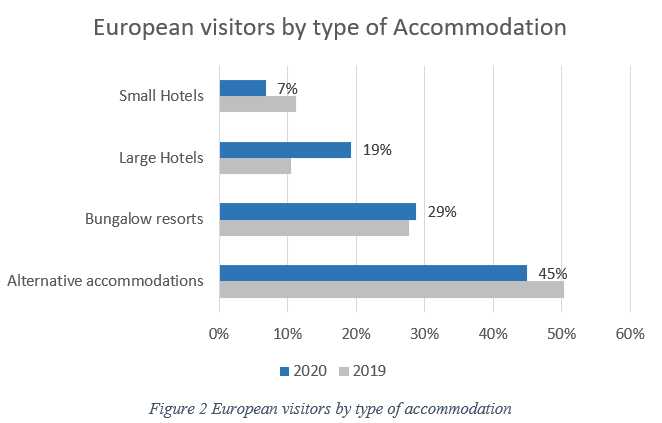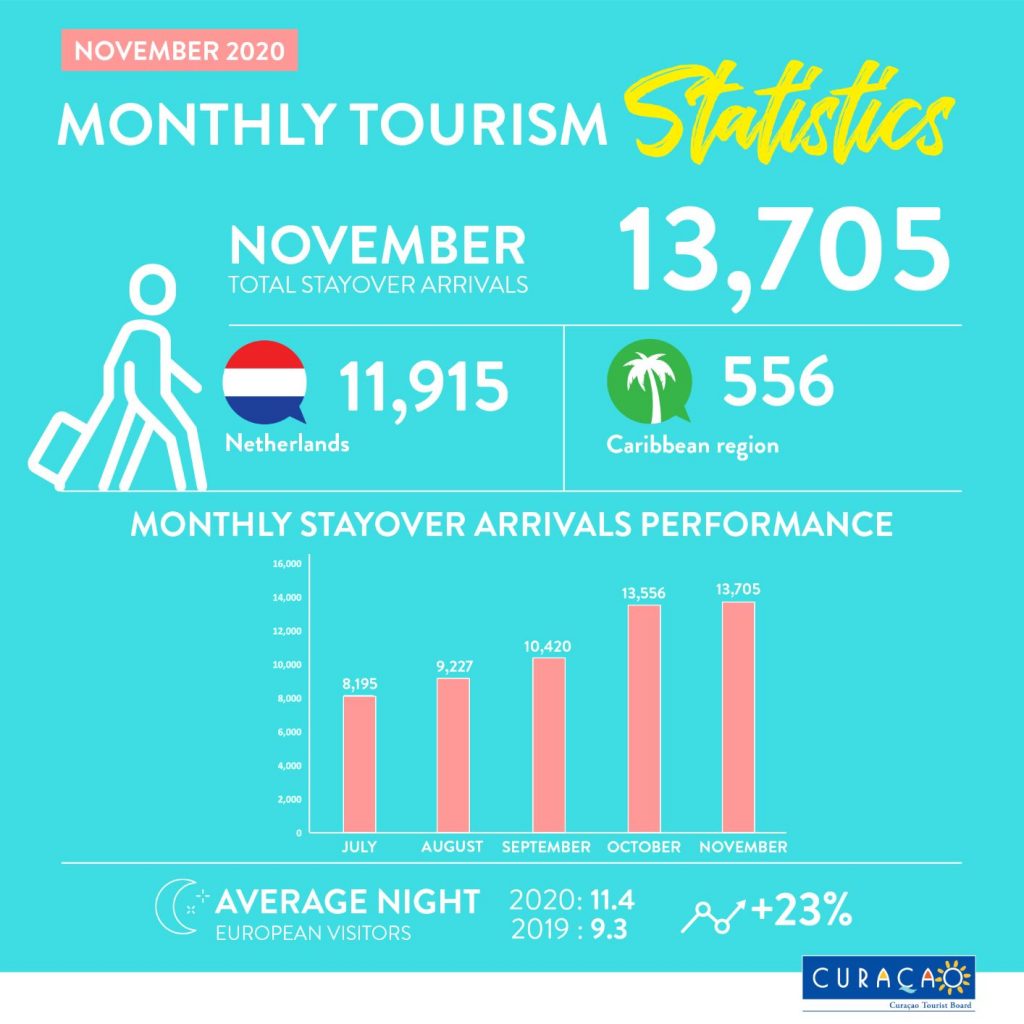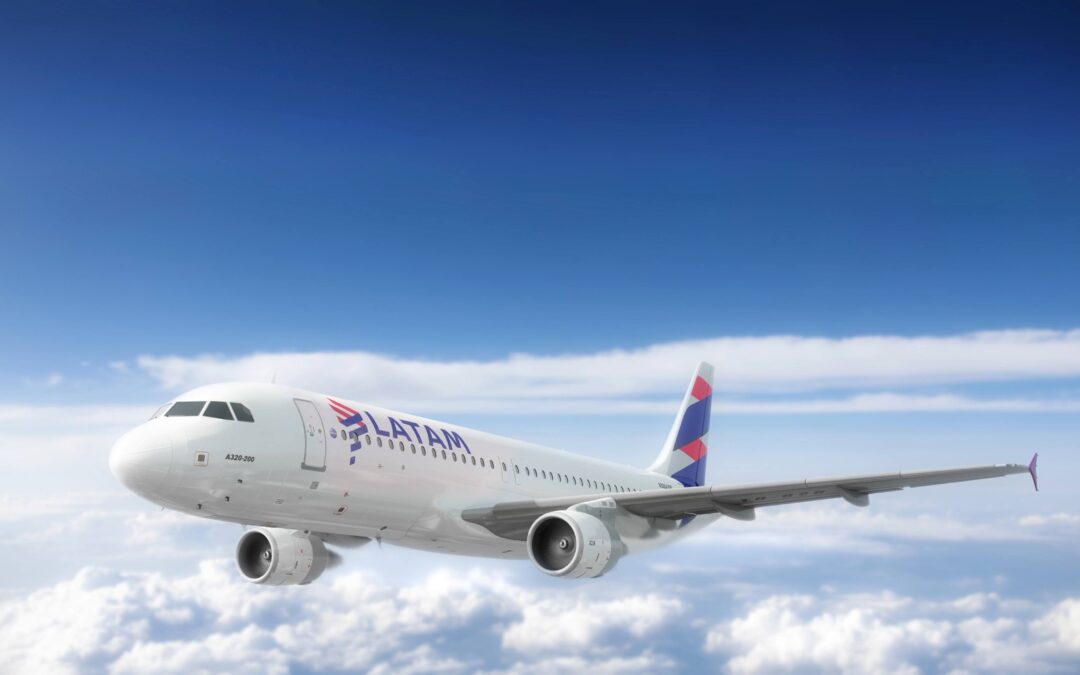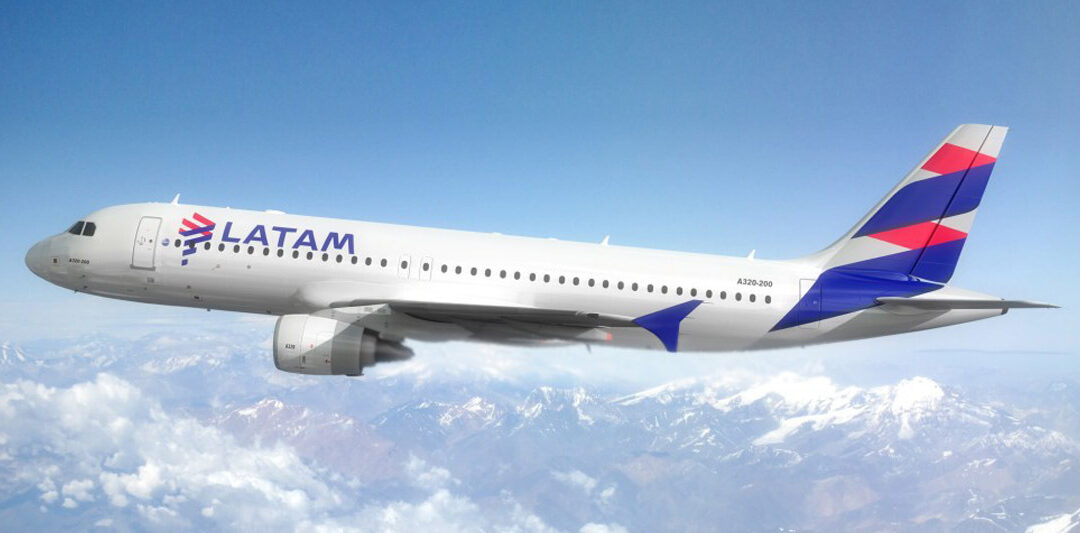…Preliminary November Visitor Arrivals 2020…
WILLEMSTAD – December 11, 2020 – The Curaçao Tourist Board (CTB) is reporting 13,705 stayover visitors for the month of November. So far, we have seen a steady increase in stayover arrivals each month since the gradual lifting of travel restrictions on July 1. We welcomed 8,195, 9,227, 10,420 and 13,556 stayover visitors in July, August, September, October respectively and now 13,705 for November (see figure 1). Ninety one percent of the reported visitors came from Europe and almost all of these European visitors, 95%, came from the Netherlands.
We have welcomed 11,915 Dutch visitors, which is 71% of November 2019. Out of Germany, we registered 231 German visitors. Fifty five percent of these European visitors stayed in resort hotels (small-, large hotels and bungalow resorts), while 45% stayed in alternative accommodations in November. The chart below (figure 2) shows the distribution by the accommodation type for the European visitors. Another developing trend that we are noticing for the European visitor is the average nights spent. European visitors spent two additional nights in November compared to November 2019. The average night spent was 11.4, while last year we registered 9.3 nights.
From the Caribbean region, we have welcomed 556 stayover visitors in November, primarily from the Dutch Kingdom islands. We welcomed 375 (Aruba), 102 (Bonaire), and 46 (St. Maarten) stayover visitors. Since service out of Newark once a week with United Airlines resumed, we have welcomed 201 visitors out of the United States of America since the gradual lifting of travel restrictions.
“With the recent development of Curaçao being designated to code orange by The Netherlands, this will unfortunately reduce monthly arrivals from the Netherlands”, commented CTB CEO, Paul Pennicook. “CTB, MEO, CHATA and other stakeholders have been meeting with the Crisis Team to discuss ways in which the negative impact of code orange can be reduced”, continued the CEO.
